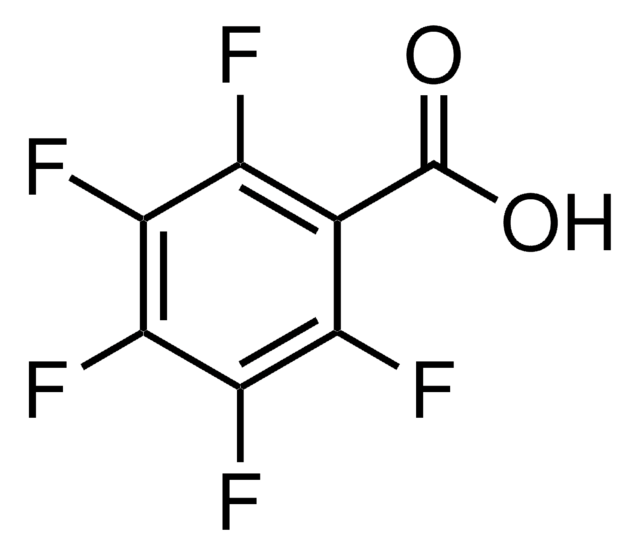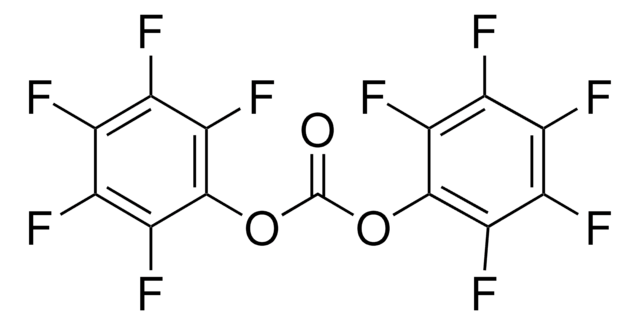303070
Methyl pentafluorobenzoate
99%
About This Item
Produits recommandés
Pureté
99%
Forme
liquid
Indice de réfraction
n20/D 1.431 (lit.)
Densité
1.532 g/mL at 25 °C (lit.)
Chaîne SMILES
COC(=O)c1c(F)c(F)c(F)c(F)c1F
InChI
1S/C8H3F5O2/c1-15-8(14)2-3(9)5(11)7(13)6(12)4(2)10/h1H3
Clé InChI
UXJRQNXHCZKHRJ-UHFFFAOYSA-N
Catégories apparentées
Application
Mention d'avertissement
Warning
Mentions de danger
Conseils de prudence
Classification des risques
Eye Irrit. 2 - Skin Irrit. 2 - STOT SE 3
Organes cibles
Respiratory system
Code de la classe de stockage
10 - Combustible liquids
Classe de danger pour l'eau (WGK)
WGK 3
Point d'éclair (°F)
172.4 °F - closed cup
Point d'éclair (°C)
78 °C - closed cup
Équipement de protection individuelle
Eyeshields, Gloves, type ABEK (EN14387) respirator filter
Certificats d'analyse (COA)
Recherchez un Certificats d'analyse (COA) en saisissant le numéro de lot du produit. Les numéros de lot figurent sur l'étiquette du produit après les mots "Lot" ou "Batch".
Déjà en possession de ce produit ?
Retrouvez la documentation relative aux produits que vous avez récemment achetés dans la Bibliothèque de documents.
Les clients ont également consulté
Notre équipe de scientifiques dispose d'une expérience dans tous les secteurs de la recherche, notamment en sciences de la vie, science des matériaux, synthèse chimique, chromatographie, analyse et dans de nombreux autres domaines..
Contacter notre Service technique












